Jagmeet Singh talks about race.That alone, more than his ethnicity and religion themselves, makes Singh a political unicorn.Even in the last few years in Canada, amid high-profile debates on cultural appropriation, systemic discrimination, and white privilege, politicians in Ottawa have treated race issues like a third rail.Singh is one of few exceptions.“I’ve faced it,” says Singh.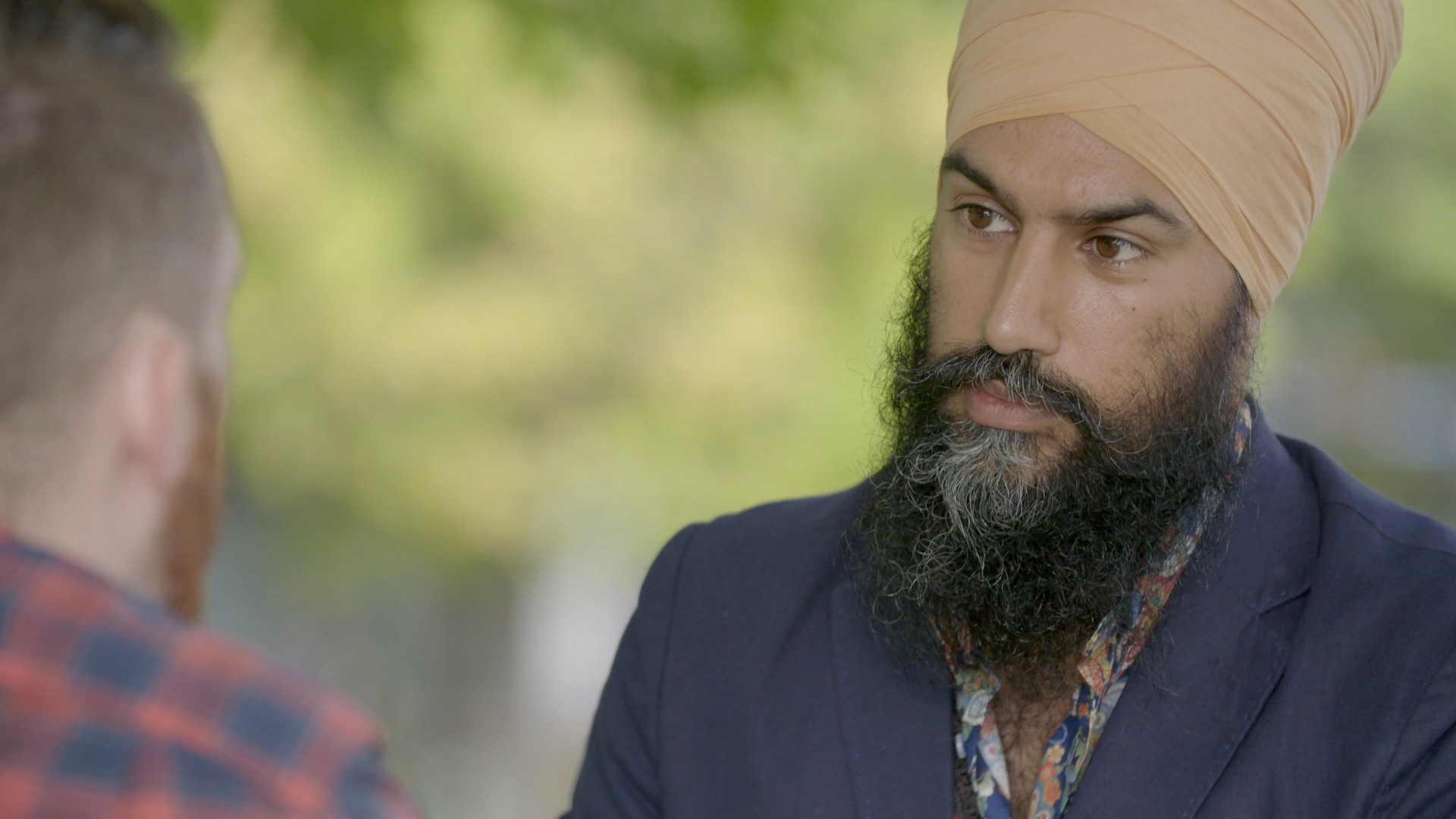 “My dad struggled younger in his life and eventually had become very well settled and bought a nice car for himself. And every now and then I’d take it for a spin and, almost without fail, if I took his car I’d get pulled over,” Singh says.
“My dad struggled younger in his life and eventually had become very well settled and bought a nice car for himself. And every now and then I’d take it for a spin and, almost without fail, if I took his car I’d get pulled over,” Singh says.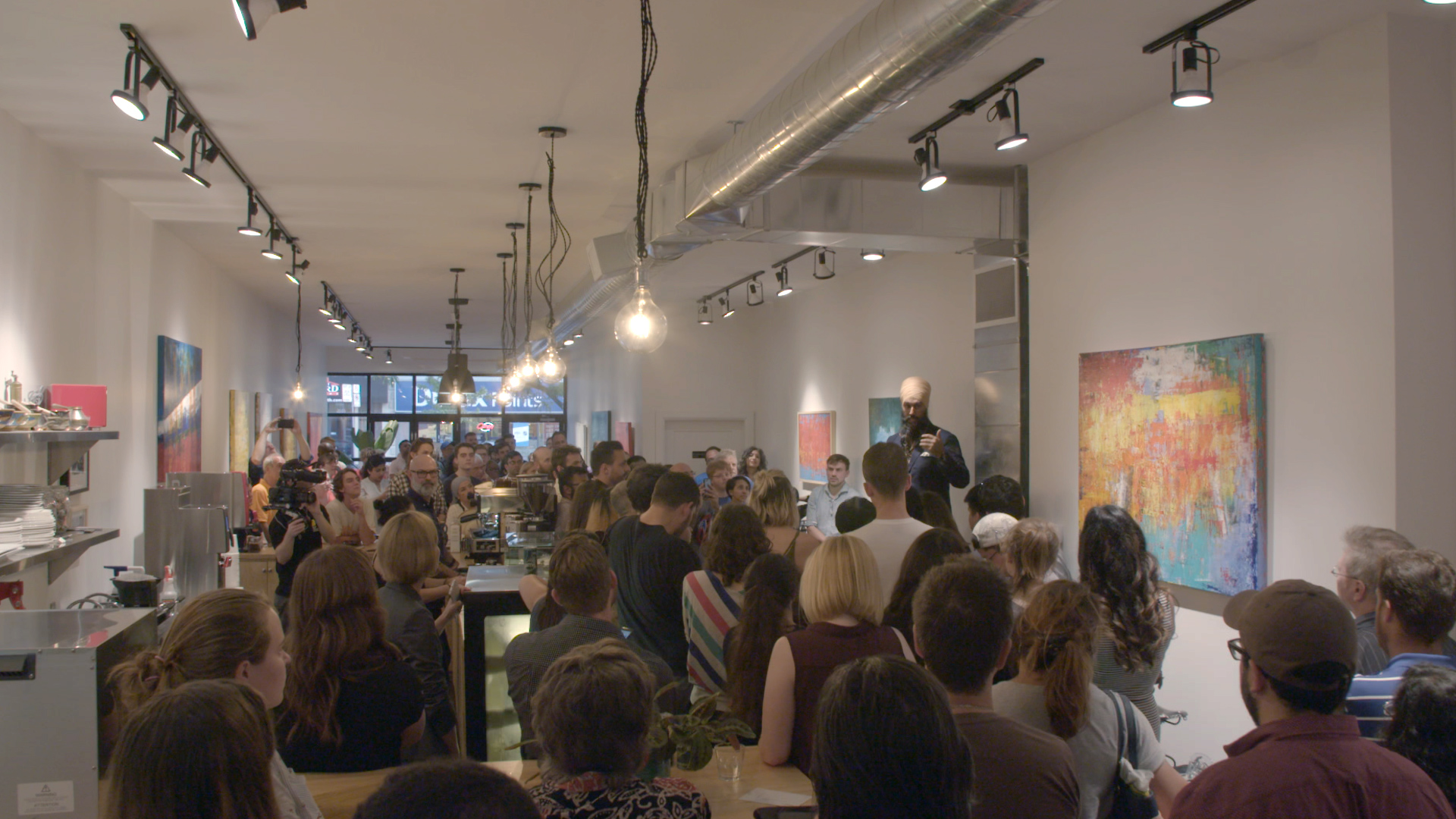 Among politicians, he’s not the only one. Liberal Iqra Khalid introduced M-103, a motion condemning Islamophobia and discrimination, and for her troubles she’s been the subject of a deluge of sexist, racist, and Islamophobic attacks. Former Conservative MP Tim Uppal would share everyday racism he often experienced.But Singh stands to be the first non-white leader of a major federal political party in Canada.Since entering the legislature, one of Singh’s biggest coups was pushing the province to ban arbitrary street checks — which police data shows disproportionately target non-white youth.Critics say he’s pandered to social conservatives in his riding, pointing to his comments on 2015 changes to Ontario’s sexual education curriculum, which sought to add units on gender identity, consent, and same-sex relationships to health classes for grade one and up.While Singh had endorsed the curriculum, he also repeatedly called on the provincial government to conduct more consultations, arguing his constituents were concerned about the “age appropriateness” of the material.
Among politicians, he’s not the only one. Liberal Iqra Khalid introduced M-103, a motion condemning Islamophobia and discrimination, and for her troubles she’s been the subject of a deluge of sexist, racist, and Islamophobic attacks. Former Conservative MP Tim Uppal would share everyday racism he often experienced.But Singh stands to be the first non-white leader of a major federal political party in Canada.Since entering the legislature, one of Singh’s biggest coups was pushing the province to ban arbitrary street checks — which police data shows disproportionately target non-white youth.Critics say he’s pandered to social conservatives in his riding, pointing to his comments on 2015 changes to Ontario’s sexual education curriculum, which sought to add units on gender identity, consent, and same-sex relationships to health classes for grade one and up.While Singh had endorsed the curriculum, he also repeatedly called on the provincial government to conduct more consultations, arguing his constituents were concerned about the “age appropriateness” of the material.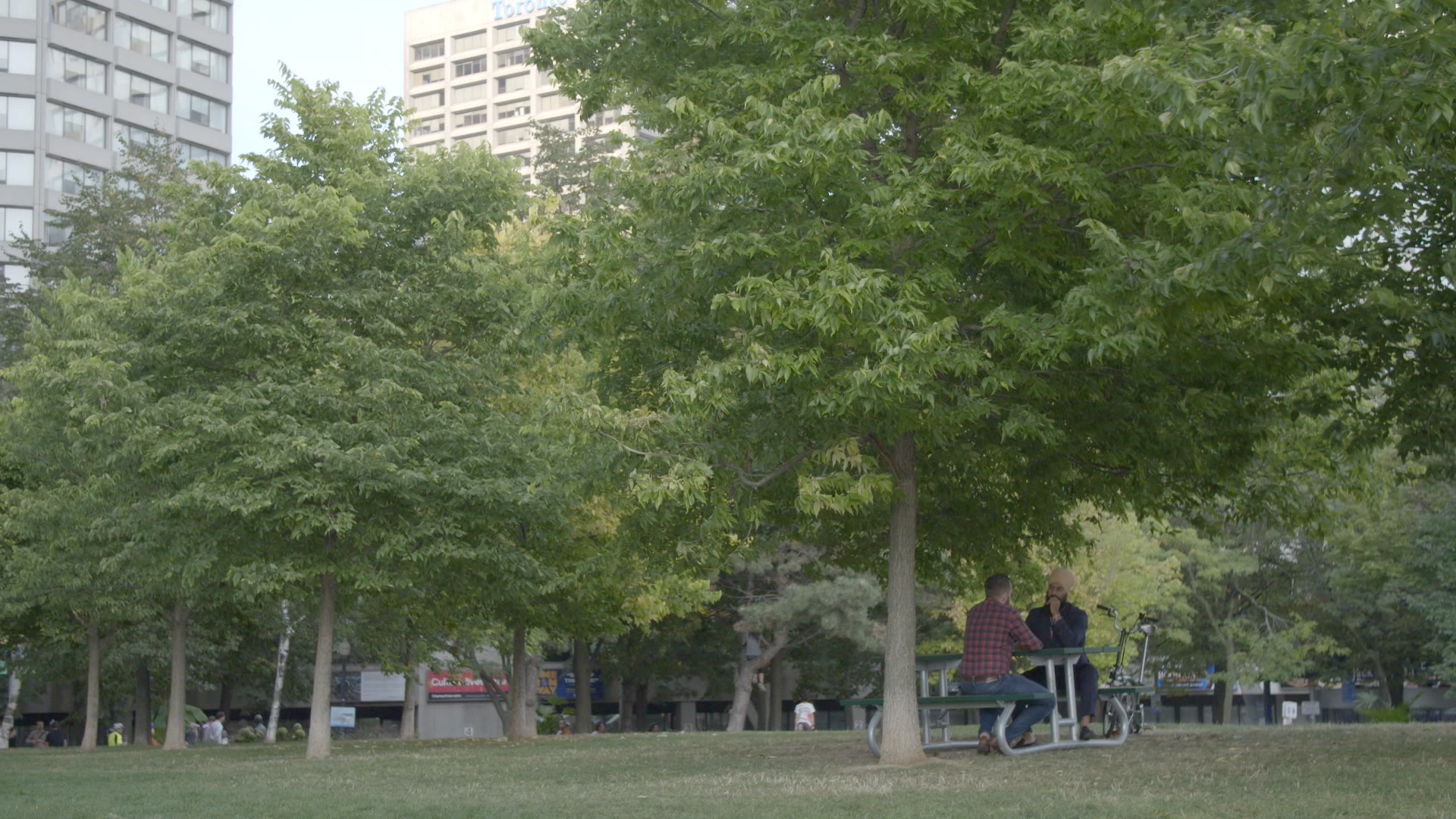 Over half an hour of conversation, Singh has a quality that makes him a perfectly marketable retail politician: He can talk frankly, honestly, but avoid veering too far off his script. He sounds extemporaneous, even if he’s not. He can say so much in a few sentence, then spend large stretches saying nothing at all.It’s a quality he shares with Justin Trudeau. And Jack Layton, for that matter.
Over half an hour of conversation, Singh has a quality that makes him a perfectly marketable retail politician: He can talk frankly, honestly, but avoid veering too far off his script. He sounds extemporaneous, even if he’s not. He can say so much in a few sentence, then spend large stretches saying nothing at all.It’s a quality he shares with Justin Trudeau. And Jack Layton, for that matter.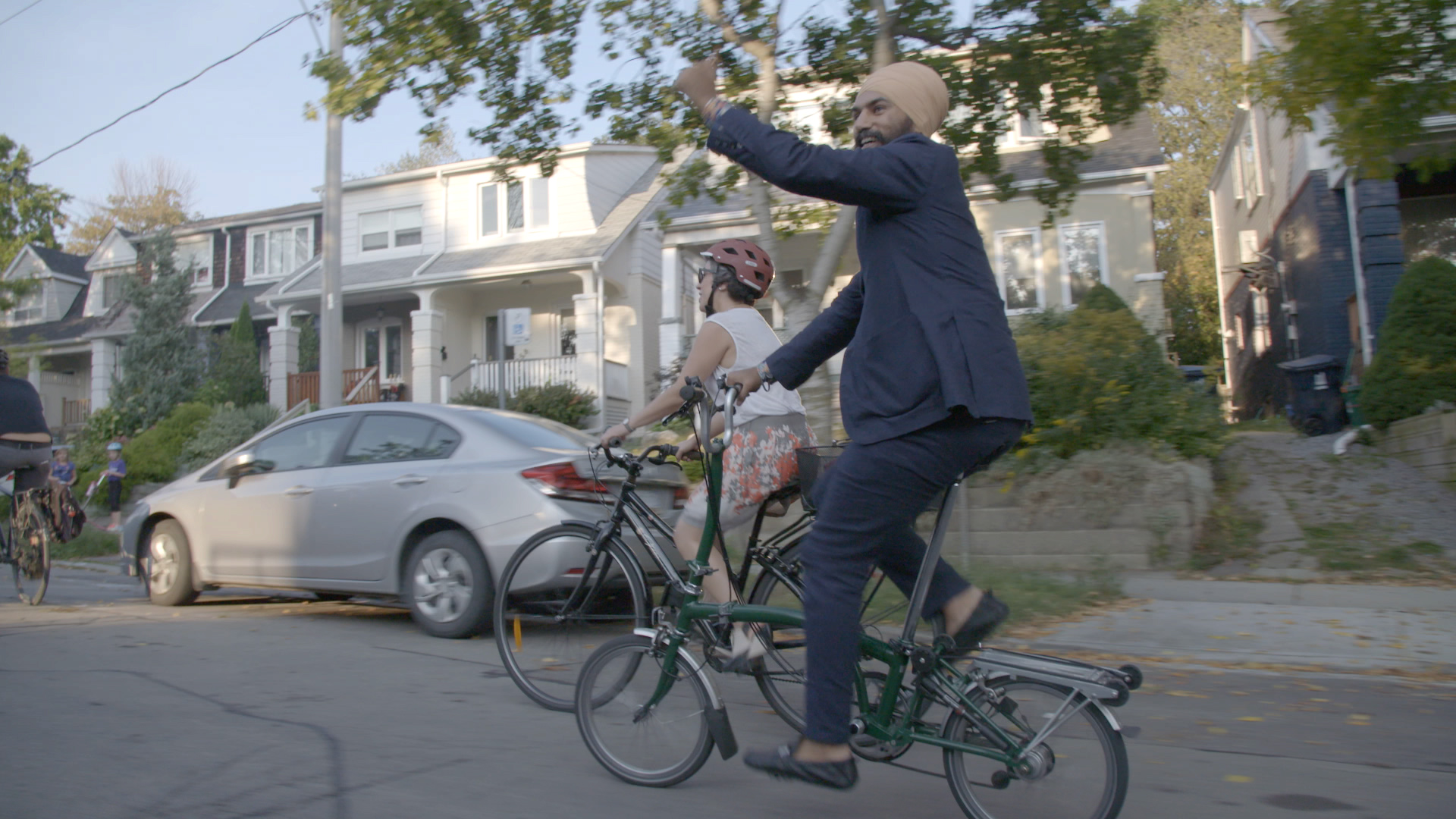 There aren’t many politicians who will get recognized on the street. Singh is one of them, although that recognition likely doesn’t extend far outside of urban Ontario.There are things Singh has in common with Trudeau. He’s considered suave, charming, well-dressed, and passionate by supporters.But there are plenty of things that Trudeau has that Singh doesn’t. The Brampton politician doesn’t always command a podium — during his campaign launch, surrounded by supporters and familiar faces, he flubbed a number of lines before stopping, taking a breath, and trying again.
There aren’t many politicians who will get recognized on the street. Singh is one of them, although that recognition likely doesn’t extend far outside of urban Ontario.There are things Singh has in common with Trudeau. He’s considered suave, charming, well-dressed, and passionate by supporters.But there are plenty of things that Trudeau has that Singh doesn’t. The Brampton politician doesn’t always command a podium — during his campaign launch, surrounded by supporters and familiar faces, he flubbed a number of lines before stopping, taking a breath, and trying again.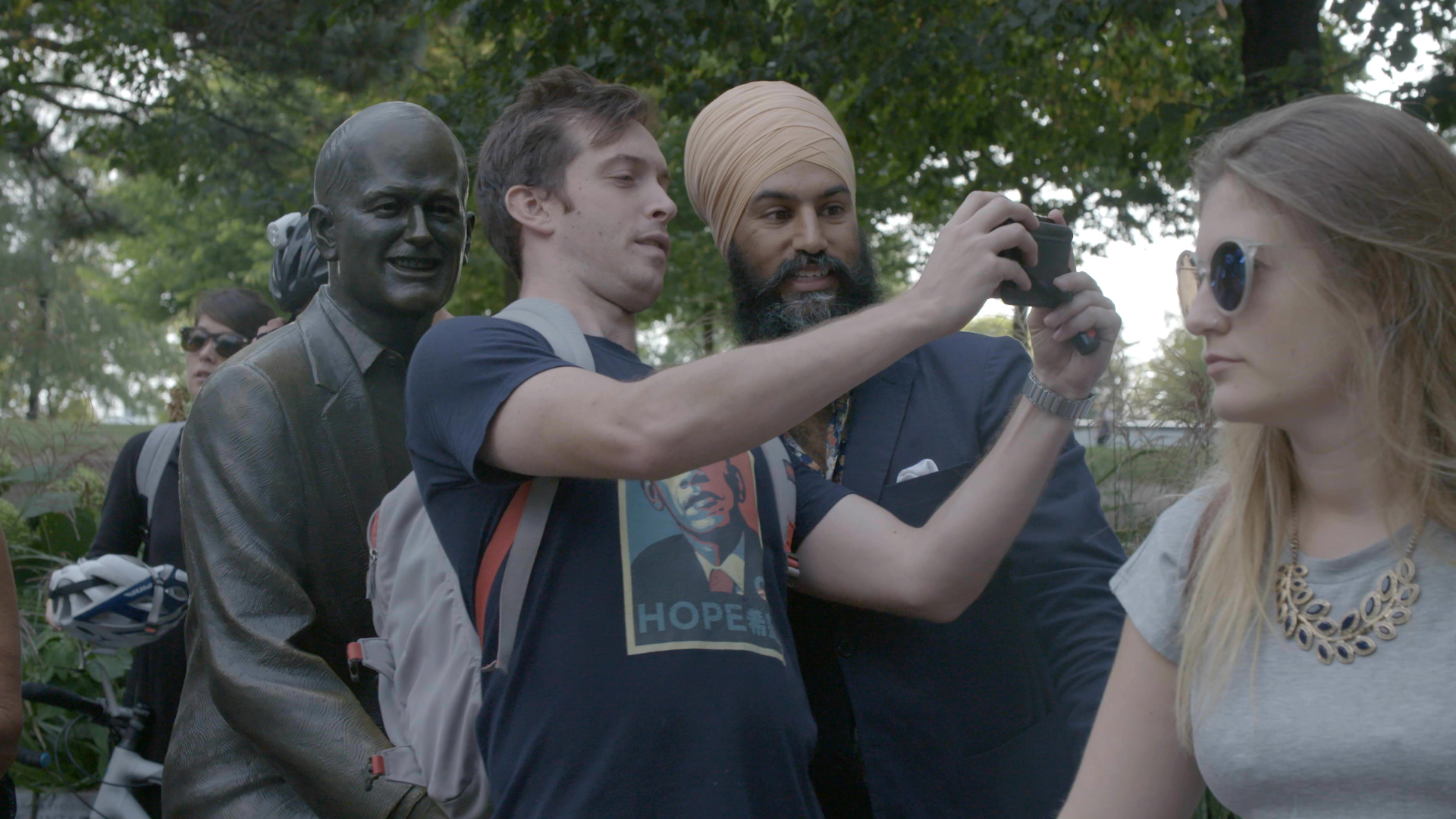 Even Jack Layton, a figure that seemingly every NDP politician has tried with limited success to emulate (Singh is no exception) had to contest four elections before he became le bon Jack. Layton died a famous social justice warrior with an iconic moustache and a penchant for sticking up for the little guy. But ask many Canadians in 2004, when he first ran, and Layton was a communist, a used car salesman, a hippie, or a loon. Maybe all four.And even in his dramatic 2011 breakthrough: Jack Layton lost. He came second, sure, but just three-in-ten Canadians voted for him.As the cameras set up for our interview, Singh asks me: How do you like your job?I tell him I like it. I bounce the question back: How do you like your’s?I like it now, he tells me.Now?Singh goes on to explain that for the first two years of his time in office, he hated the gig. He missed his time as a lawyer, moonlighting as a social justice activist. He didn’t see himself making a difference.
Even Jack Layton, a figure that seemingly every NDP politician has tried with limited success to emulate (Singh is no exception) had to contest four elections before he became le bon Jack. Layton died a famous social justice warrior with an iconic moustache and a penchant for sticking up for the little guy. But ask many Canadians in 2004, when he first ran, and Layton was a communist, a used car salesman, a hippie, or a loon. Maybe all four.And even in his dramatic 2011 breakthrough: Jack Layton lost. He came second, sure, but just three-in-ten Canadians voted for him.As the cameras set up for our interview, Singh asks me: How do you like your job?I tell him I like it. I bounce the question back: How do you like your’s?I like it now, he tells me.Now?Singh goes on to explain that for the first two years of his time in office, he hated the gig. He missed his time as a lawyer, moonlighting as a social justice activist. He didn’t see himself making a difference.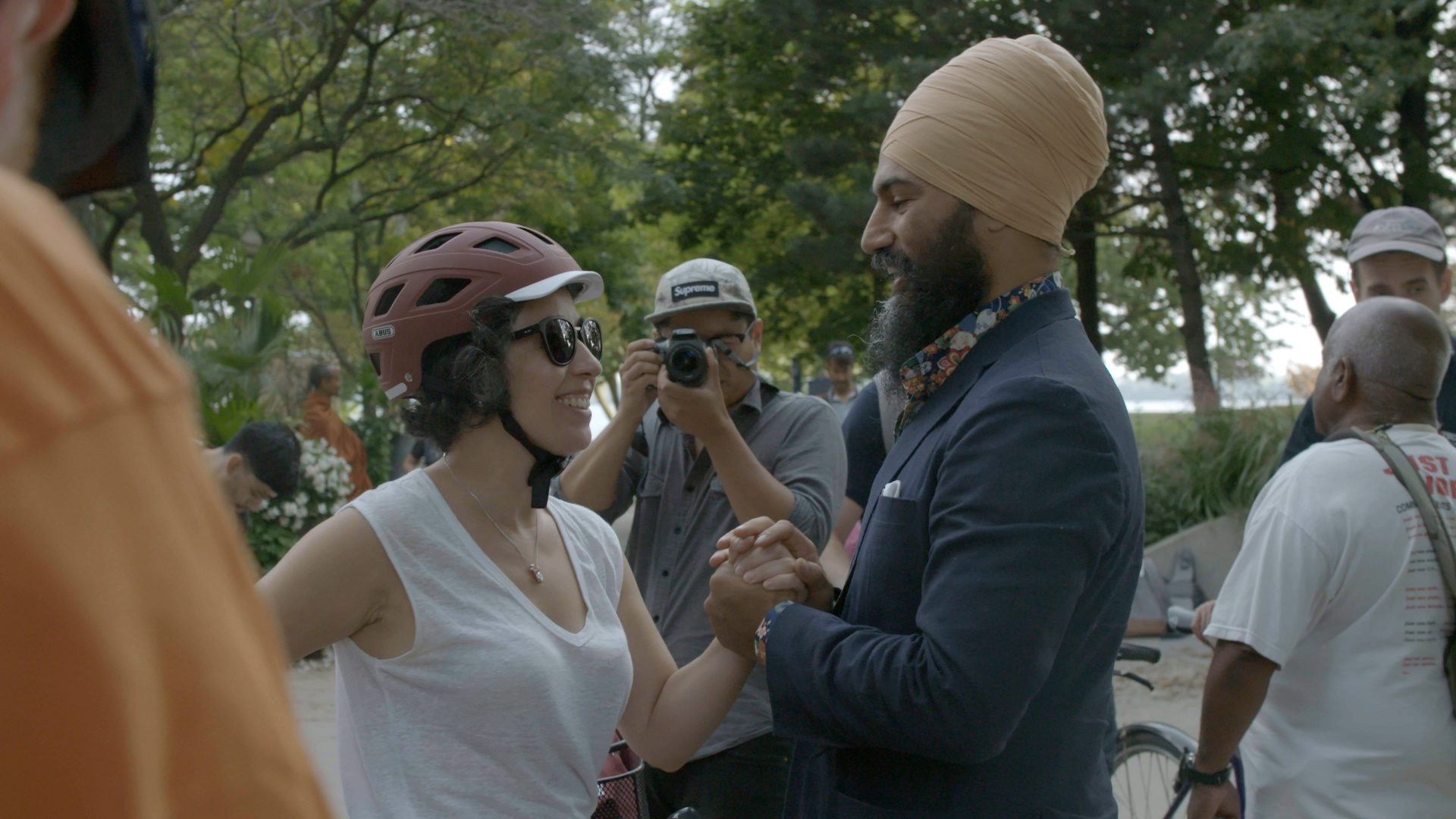 At the same time, he’s caught flak for being light on policy. His critics aren’t wrong: His policy page has lots of headlines, but it’s light on specifics.That plotline is not new for the NDP. There’s an old Canadian political adage, often adapted based on who’s telling it: You go to a Conservative convention to get drunk, you got to a Liberal convention to get laid, you go to an NDP convention to debate policy.
At the same time, he’s caught flak for being light on policy. His critics aren’t wrong: His policy page has lots of headlines, but it’s light on specifics.That plotline is not new for the NDP. There’s an old Canadian political adage, often adapted based on who’s telling it: You go to a Conservative convention to get drunk, you got to a Liberal convention to get laid, you go to an NDP convention to debate policy.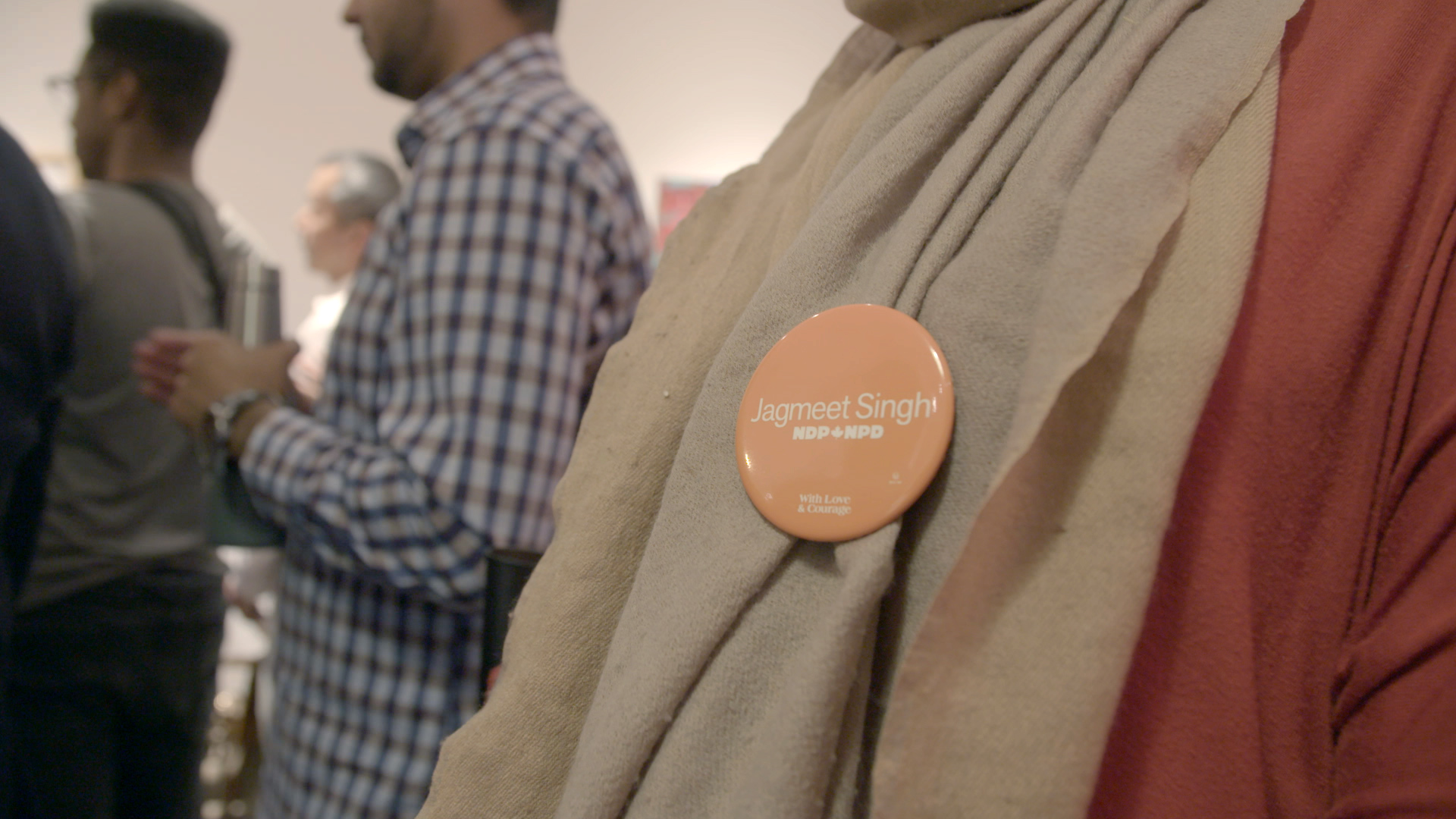 The Quebec proposal, initially touted by the Parti Quebecois but later adapted, albeit lightly watered down, by the Quebec Liberal Party would ban face-coverings for various government employees and create restrictions on when the state can make religious accommodations for citizens. While it is seen as a policy targeted at women who wear the niqab, it’s a ban that could impact someone like Singh himself.Caron pushed on the issue.Martine Ouellet, leader of the separatist Bloc Quebecois, put it more bluntly.“He says: ‘I have progressive values,’ but ultimately, what he displays, those are his religious values,” Ouellet told reporters in the middle of a longer rant about Singh’s religion. “Those are not the same things.”During the race, Singh was also confronted by an irate protester at one campaign stop in Mississauga. He and his team tried, in vain, to ignore the woman, who is known to be linked to a far-right anti-immigration group, as she screamed questions about Singh’s position on Sharia law.“People come up to me, they want to fight me,” says Singh. Even during the campaign, he says, “I’ve faced a lot of people come up to me and saying racist things, hateful things, aggressive things.”That’s not new.
The Quebec proposal, initially touted by the Parti Quebecois but later adapted, albeit lightly watered down, by the Quebec Liberal Party would ban face-coverings for various government employees and create restrictions on when the state can make religious accommodations for citizens. While it is seen as a policy targeted at women who wear the niqab, it’s a ban that could impact someone like Singh himself.Caron pushed on the issue.Martine Ouellet, leader of the separatist Bloc Quebecois, put it more bluntly.“He says: ‘I have progressive values,’ but ultimately, what he displays, those are his religious values,” Ouellet told reporters in the middle of a longer rant about Singh’s religion. “Those are not the same things.”During the race, Singh was also confronted by an irate protester at one campaign stop in Mississauga. He and his team tried, in vain, to ignore the woman, who is known to be linked to a far-right anti-immigration group, as she screamed questions about Singh’s position on Sharia law.“People come up to me, they want to fight me,” says Singh. Even during the campaign, he says, “I’ve faced a lot of people come up to me and saying racist things, hateful things, aggressive things.”That’s not new.

Advertisement
Cops called it “routine procedure.”As time went on, Singh says, he started facing street checks. He counts 11 or 12 times when the cops stopped him arbitrarily and asked for ID.“It really makes you feel that something’s wrong with you in your own city,” he says.And he’s drawn up policies that stem from that experience.On carding, he wants anti-racial profiling policies in place for the RCMP: “We can actually limit the way the interactions occur,” he says. On criminal law reform: “The criminalization of personal possession [of drugs] is targeting racialized people,” he says. He’d end that.Standing on a table in a packed coffee shop in Toronto’s east end, he’ll bring up his personal experiences with discrimination. He’ll talk about being called racist names, having kids on the playground tell him to take a shower because his skin is dirty.“It really makes you feel that something’s wrong with you in your own city”

First elected in 2011, he became the first member of the Ontario legislature to wear a turban.
Advertisement
“That’s the kind of language I expect from conservatives,” Niki Ashton, the Manitoba MP running against Singh for the leadership, told him during one debate.Singh’s rise within his provincial party was quick. He was promoted to deputy leader after just one mandate.Today, six years after his first election win, the consensus within the NDP is that Singh is on track to become the next leader of the federal party. He leads the other candidates in fundraising, membership sign-ups, and the limited polling data available also puts him in front of the pack.I sat down with Singh on a park bench near the Jack Layton Ferry Terminal — a location his campaign suggested, for obvious symbolic reasons.There aren’t many politicians who will get recognized on the street.
Advertisement

After our interview, I follow Singh to the edge of a bike path on Toronto’s waterfront. A dozen supporters on bikes are waiting for him. It’s a flourish of his campaign that he’s repeated across the country: He hops on a fixed-gear collapsible bike and cycles through the city, chatting with his supporters who huddle around him, like a friendly Tour de France.On the way, a few passing cyclists turn their heads. A few cars honk. One woman, taking out a bag of garbage, yelps in excitement: “I’m excited for you to lead our country!”Trudeau has something crucially important: Name recognition.

Advertisement
Even by the time he took the stage in Hamilton, Ontario in mid-September to deliver a final pitch before party members began casting their ballots, parts of Singh’s well-worn campaign speech felt hollow and wooden. He doesn’t always know when to pause for applause. Sometimes he has a hard time sending lines home. It seems like, occasionally, he’s second-guessing himself.Where Trudeau, at times, sounds every bit the drama teacher — a fact derided by journalists and his opponents, but a trait that hasn’t appeared to hurt him with voters — Singh often sounds more like a lawyer. It’s no coincidence: He practiced criminal law before entering politics.And Trudeau has something crucially important: Name recognition. Singh might be a well-known name in Toronto, but he’s an unknown quantity in the rest of the country.He’s proposing to decriminalize all drugs, from cocaine to heroin.

Advertisement
Eventually, he fell into the role. And now he’s running a leadership campaign that has some very particular hallmarks.For one, he’s proposing to decriminalize all drugs, from cocaine to heroin.“The criminalization of personal possession is targeting racialized people — Indigenous, brown and black skinned folks — more than anybody else,” he told me. He adds: “Let’s deal with it like a healthcare problem.”He’s also made opposition to racial profiling by police a foundational policy of his campaign, promising to forbid the RCMP from any kind of arbitrary street checks.He’s talked about boosting tax benefits support for minimum-wage workers. He plans to eliminate tuition fees.“Let’s deal with it like a healthcare problem.”

Advertisement
Singh faces another hurdle: His French. It’s passable, but not fluent, and with an accent that makes it clear Singh has spent little time in les régions of the province.But there’s a deeper opposition to Singh within the Quebec wing of the party.It bubbled up as Guy Caron, the only Quebecer in the race who had been considered a likeable policy wonk with little broad appeal and scant chances of winning the leadership, launched a missile at Singh: If Quebec enacted a ban on religious symbols in the public service, would you fight it?Singh says yes, he would fight such a move.“Rejecting secularism because we believe it’s just racism is fundamentally misunderstanding Quebec.”

“Rejecting secularism because we believe it’s just racism is fundamentally misunderstanding Quebec,” he said during the party’s Montreal debate.Caron, for his party, disagrees with the Quebec bill, and has since softened his criticism of Singh.“People come up to me, they want to fight me”
Advertisement
But it was when I asked Singh about his suits — his flashy, GQ-featured style that has already drawn comparisons to the current prime minister — when Singh broached the issue more head-on.“For me, style wasn’t something that was a luxury or an option, really: It was a necessity. I knew that there were certain negative stereotypes that I faced because of the way I looked. For me, suits and style became social armour.“So if you see me walk into a room wearing a crisp suit, a floral shirt, and a peach turban, it’s going to disrupt your notions.”“For me, style wasn’t something that was a luxury or an option, really: It was a necessity.”
